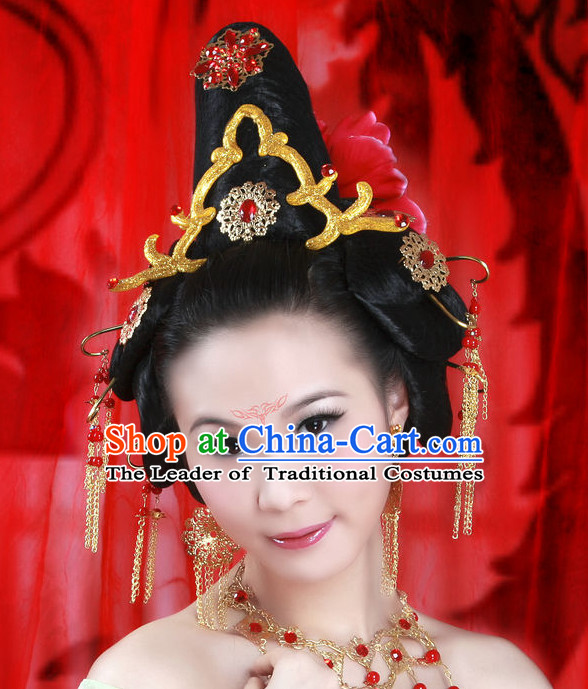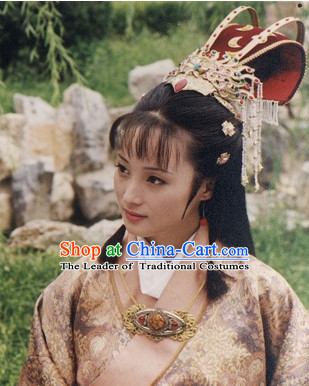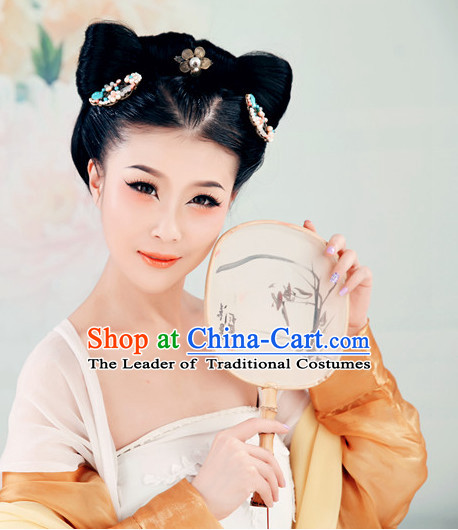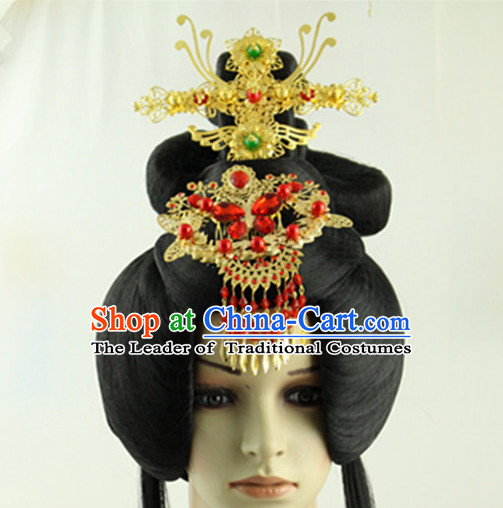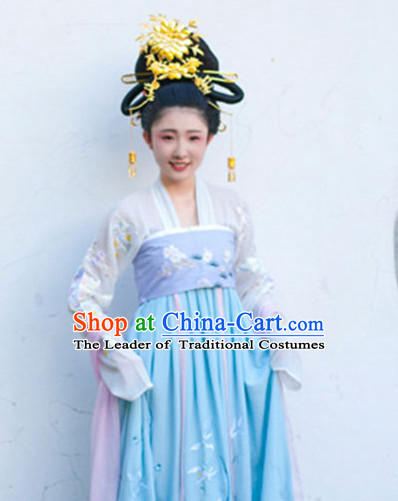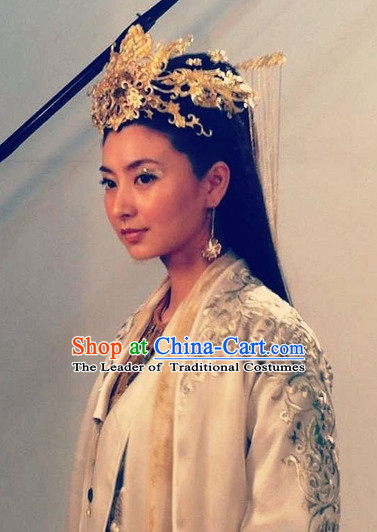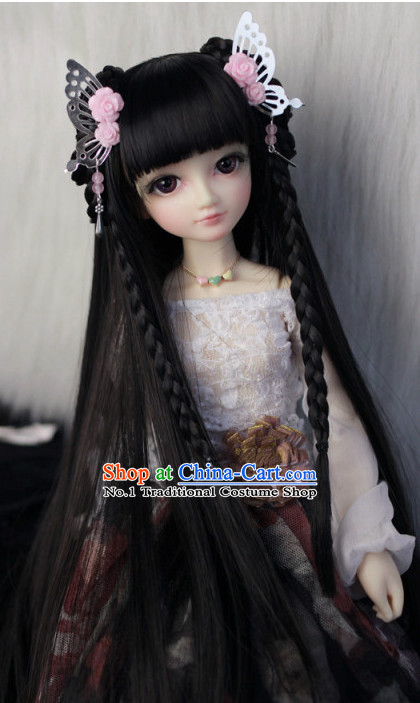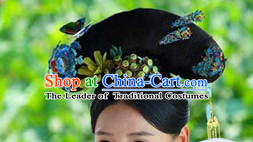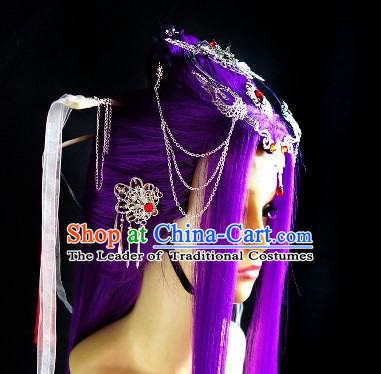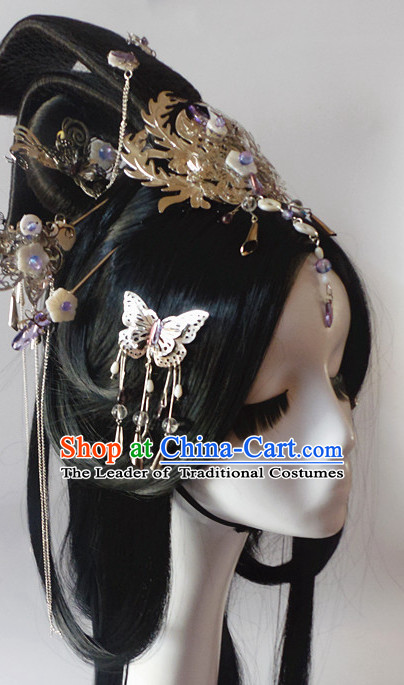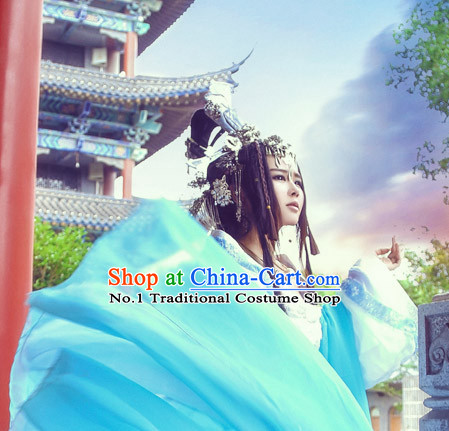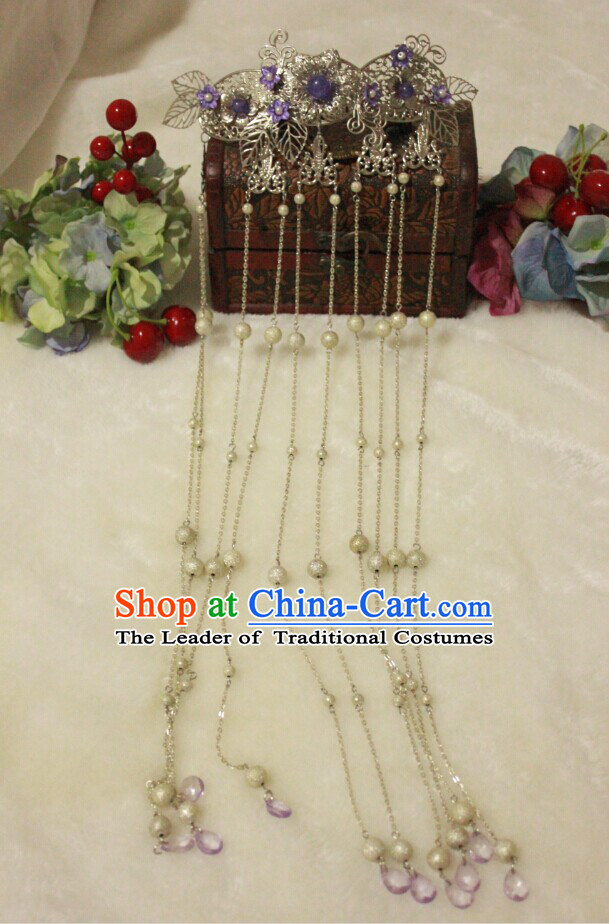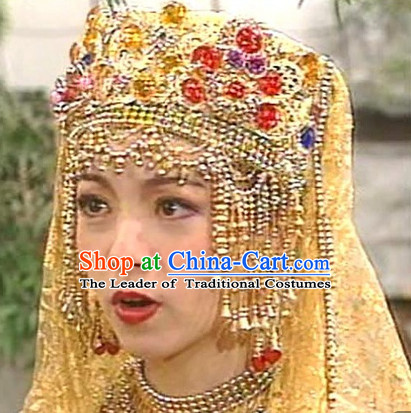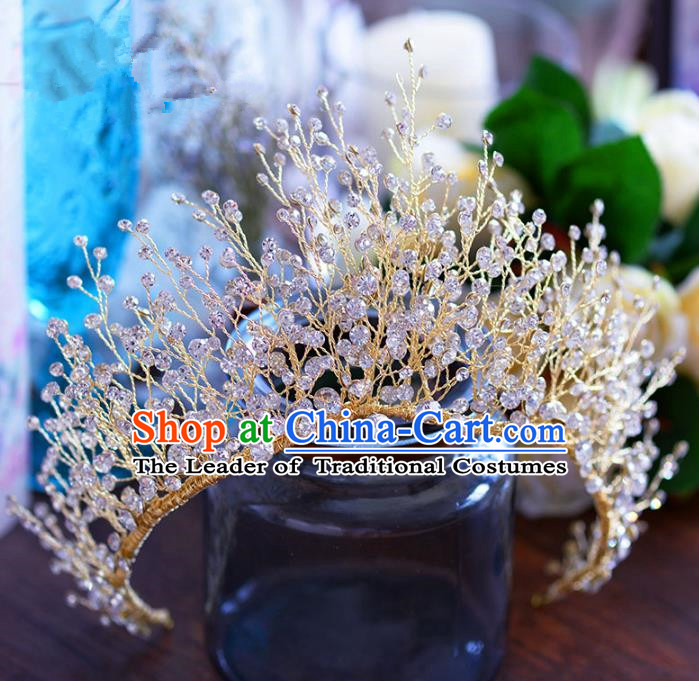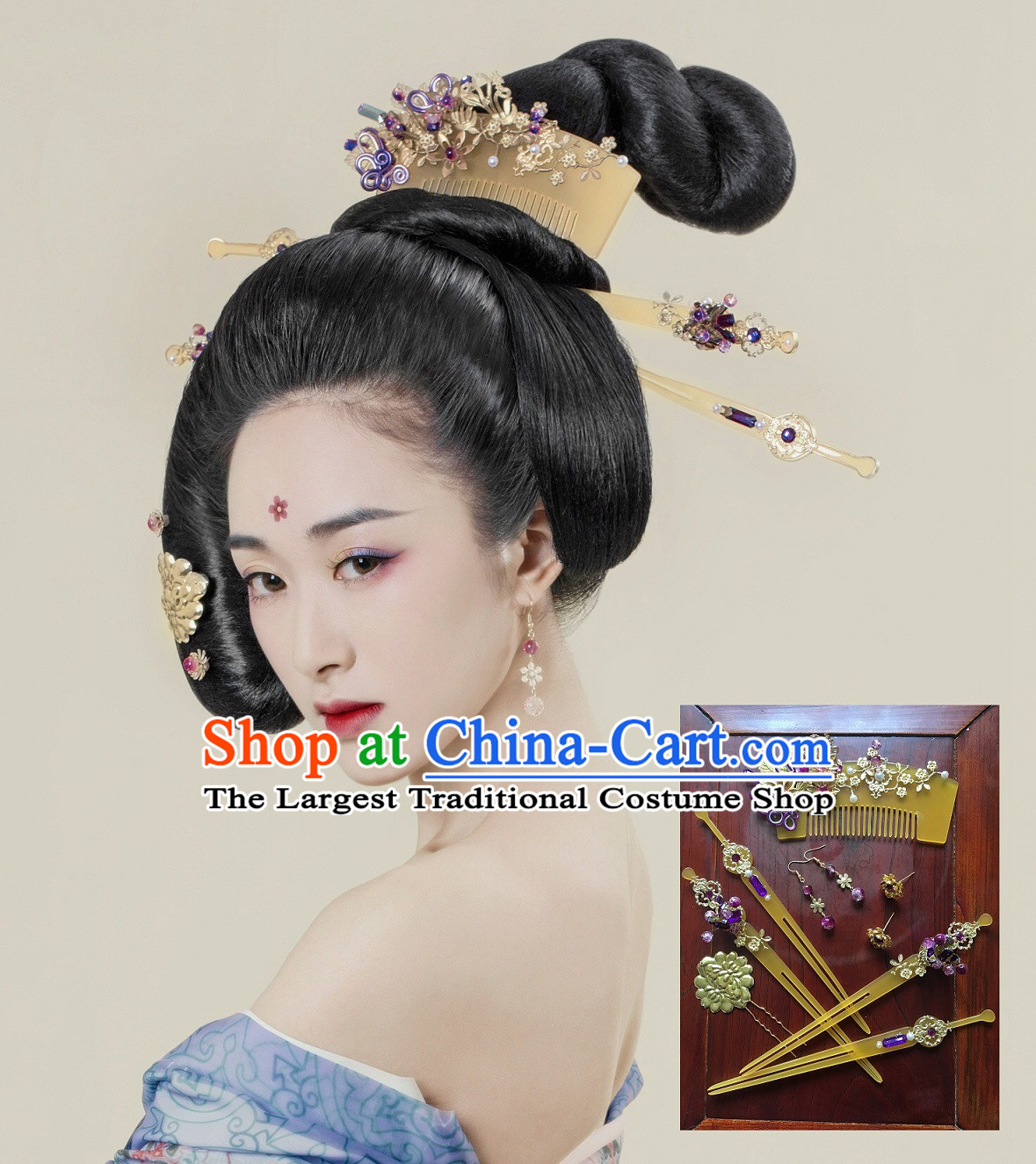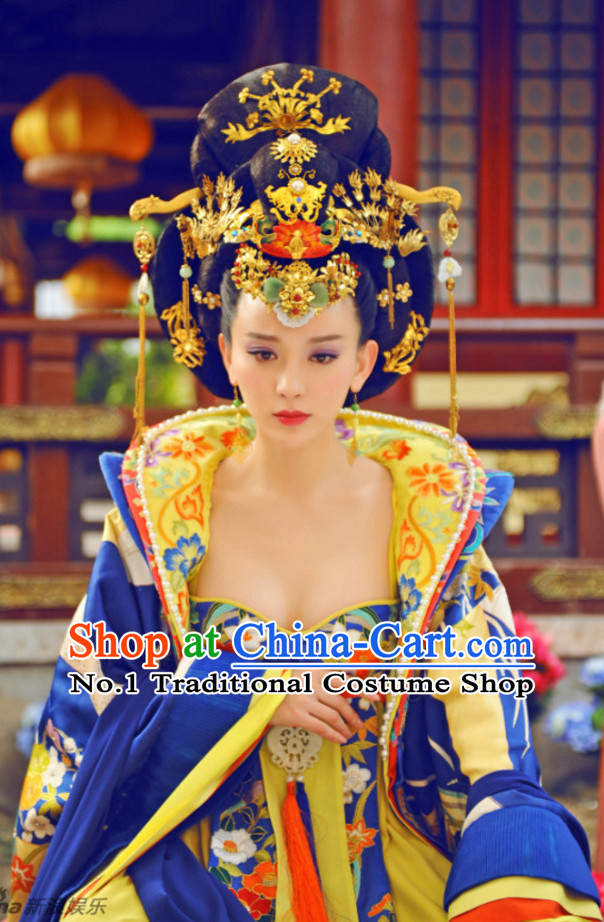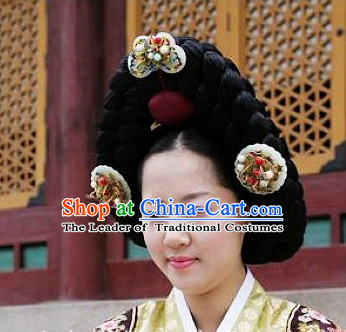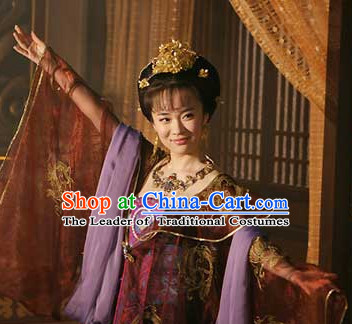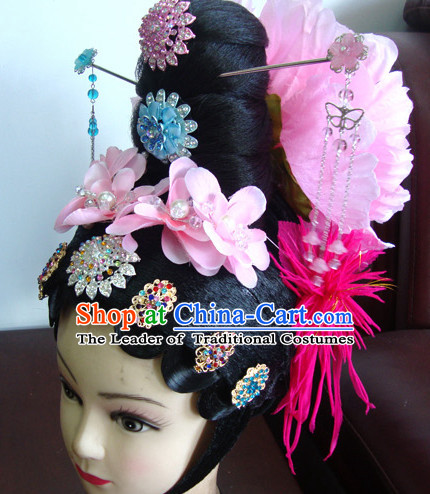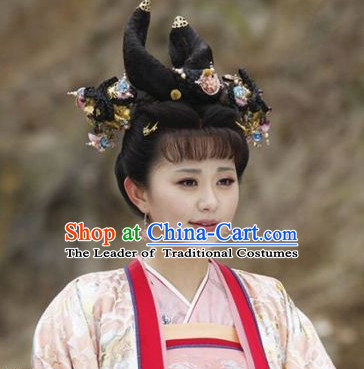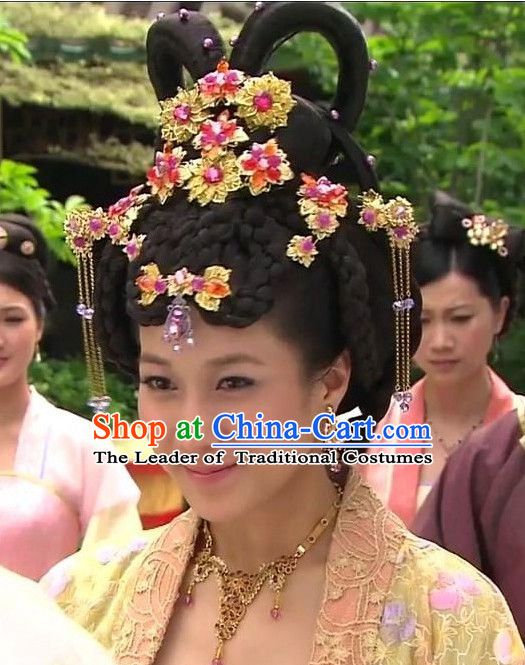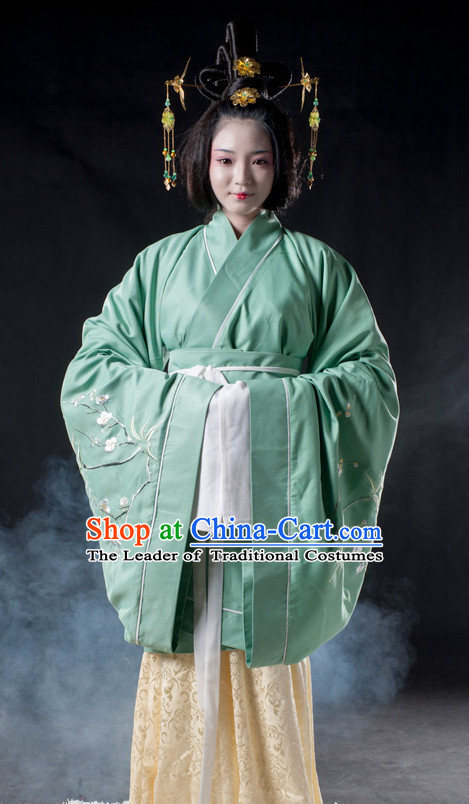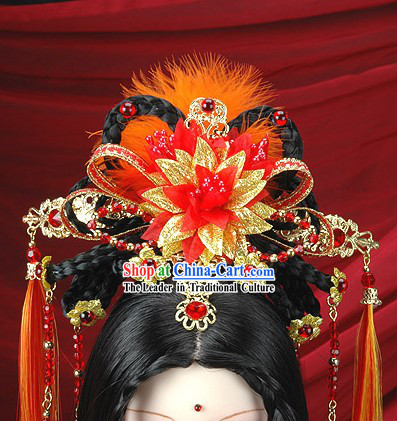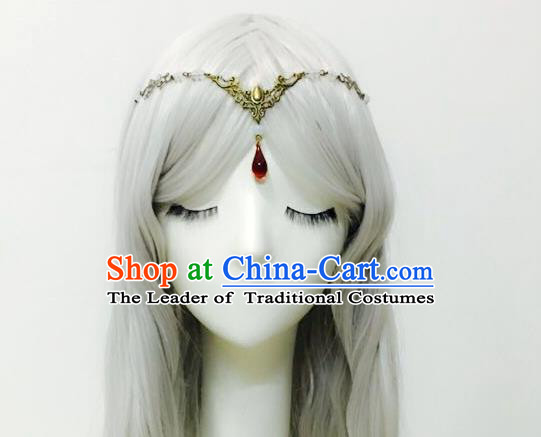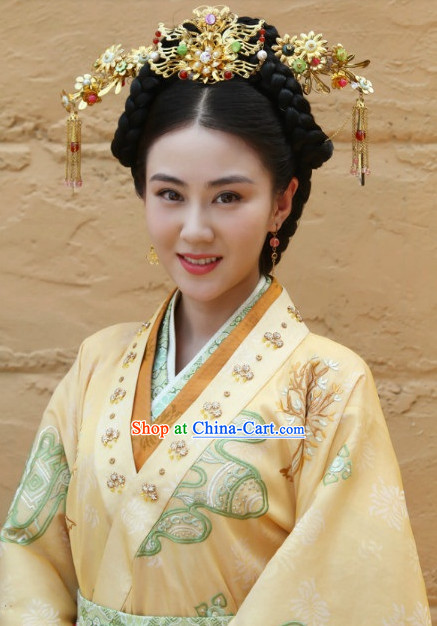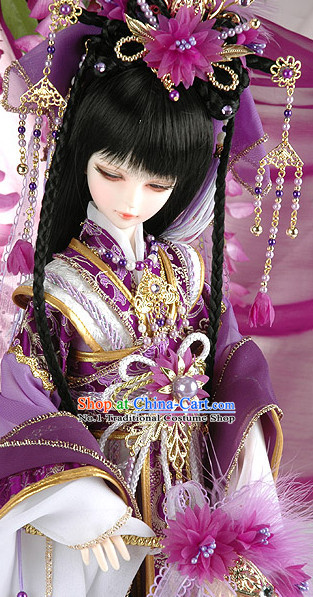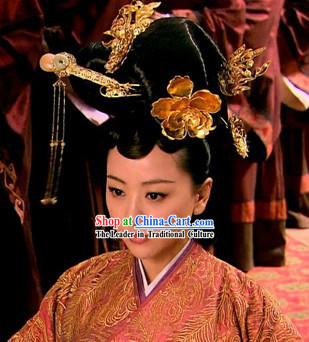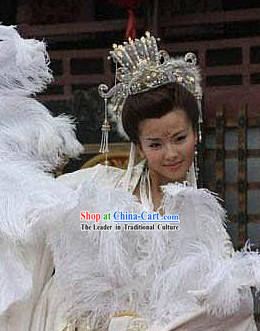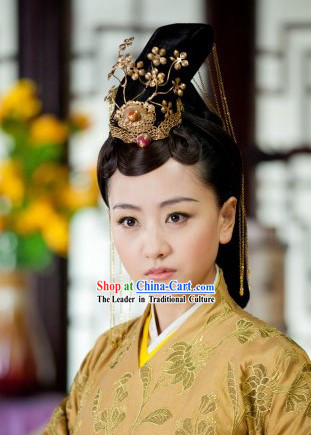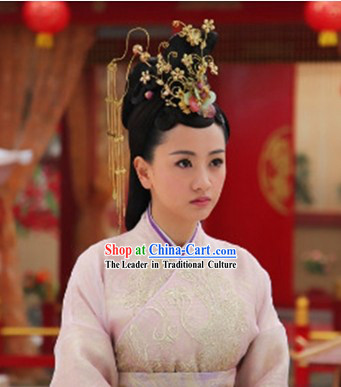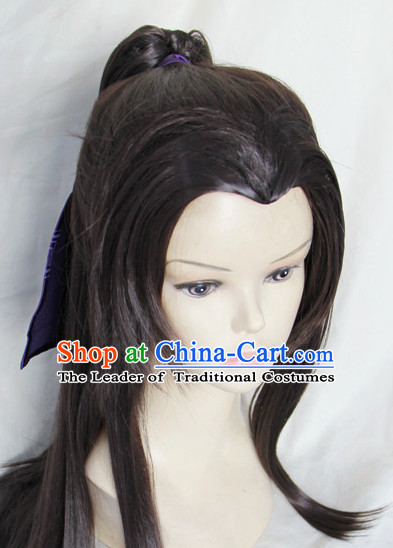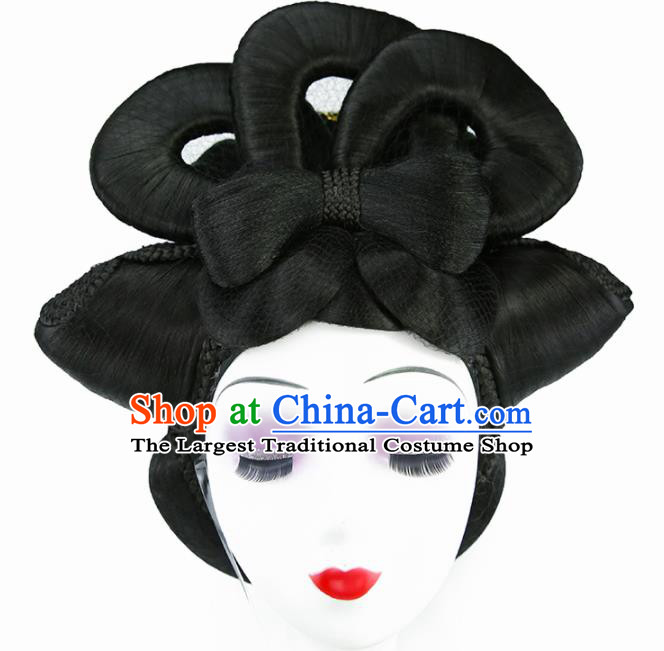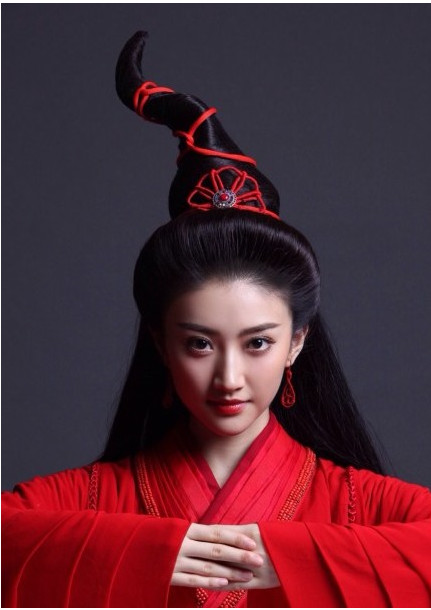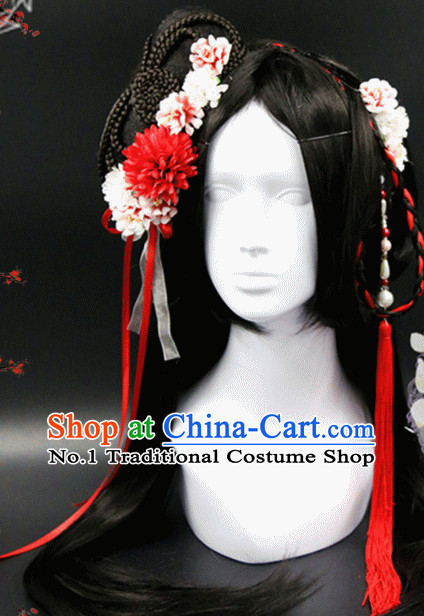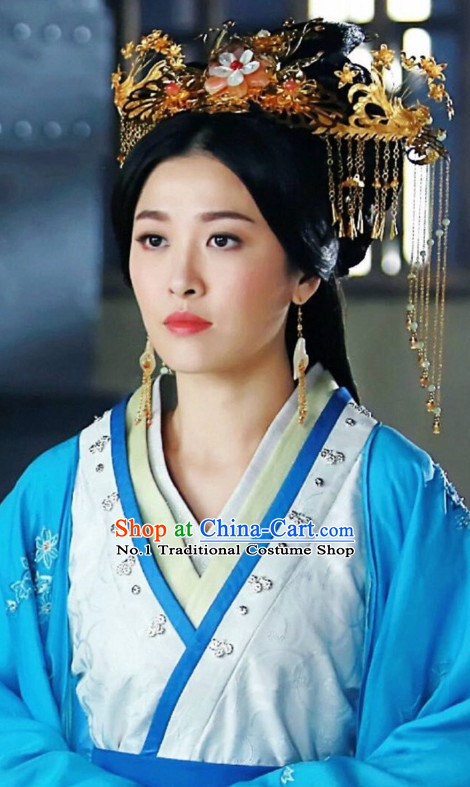
Click Related Pictures for More Audios:
In ancient China, the long black hair and headdresses of imperial princesses were highly representative forms of art in Chinese culture.
These elaborate hairstyles and headdresses not only demonstrated the noble status of royal family members but also reflected the pursuit of beauty and aesthetic concepts of that time.
The hairstyles of imperial princesses in ancient China were usually characterized by long black hair, which was considered a symbol of nobility, elegance, and mystery.
The hair was often styled into braids and fixed atop the head with silk ribbons or gold threads.
This hairstyle not only kept the hair tidy but also showcased the feminine beauty and gracefulness of women.
Additionally, long black hair was used to distinguish different members of the royal family, such as empresses, consorts, and princesses.
Apart from their long black hair, imperial princesses in ancient China also wore various headdresses, including bows, beads, gemstones, and metal accessories.
These headdresses were usually made of gold or silver and featured exquisite designs and unique craftsmanship.
They not only added charm to the royal family members but also served as symbols of identity and status.
For example, empresses typically wore golden headdresses, while consorts wore silver ones.
The long black hair and headdresses of imperial princesses in ancient China hold significant historical importance.
They are not only essential components of the personal image of royal family members but also important carriers of Chinese ancient culture.
By studying these artworks and their historical context, we can better understand ancient Chinese aesthetic concepts, social systems, and etiquette norms related to the royal family.

